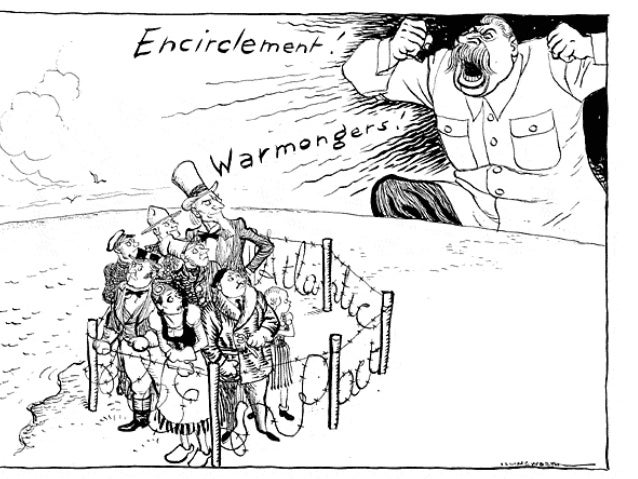1. The smaller new members of Nato being apprehensive makes no real sense since Nato still protects them from Russian military incursion. A member of Nato attacking another member doesn't void the treaty just makes the aggressor nation the target of the alliance. The soft power the Russians may use is no different the various economic battles that occur between the US and the EU. Not against the rules of Nato. Nato essentially guarantees the borders, not the economy or even the political structure as long as it is not changed by force.
I also mean the established smaller members of NATO. Adding a new major member to the organization, one with a high self-valuation of its importance (that is, a big national ego) as well as a huge nuclear stockpile would certainly change the internal dynamics of NATO in a significant way. At the very least the comparative weight of all established members would change, and not for the better. And then, if the organization would later on become an arena of US-Russian rivalry, which would not be out of the question at all, that would necessarily destabilize it and hurt its ability to function.
Newly independent, and/or free from the Soviet yoke, Russia's smaller neighbours would want to find support with which to withstand Russia's potential future attempts to use influence towards them. On balance, Russia being a member in NATO would dilute the political capital/support they get from NATO membership, which would reflect on their international position and domestic politics. Comparative to the OTL, their position would be more precarious.
2.The Russians don't have the right to stop the expansion of Nato but at the same time it is reasonable to see an Organization formed to oppose you expanding to your borders thus taking away the buffer between you as being aggressive.
NATO was not founded to oppose Russia. It was founded as a mutual defence organization. Note the difference: the goal of NATO was not to attack the USSR but to defend its members from a potential foreign attack. Even today, NATO is not a threat to Russia, that is
the Russian Federation as an independent nation within its sovereign territory, territorial sea and airspace. What it is, is a counter against Russia's ability to throw its weight around outside its borders. NATO's expansion in the area made "grey" by the dissolution of the Warsaw Pact can only be called "aggressive" if one argues that Russia has the intrinsic right to dominate its "near abroad". Remember that so far NATO has not moved such troops into the area of these new member states that would be a realistic threat to Russia itself, and seems unlikely to do this in the foreseeable future.
3. While no treaty on paper the Russians won't care, they will see it as a betrayal of an agreement made.
The "agreement" you are referring to was not a binding agreement between nations. The USSR, in its time, made several binding agreements it broke later, sometimes rather aggressively (say, the post-WWI peace treaties with Finland and the Baltic states, and the non-aggression pacts with the same), and post-1991 Russia has also broken binding agreements itself (the 1994 Budapest Memorandum being a notable example), so it is IMO kind of ironic that people should latch on to a verbal promise made in private by officials from two NATO states to a former leader of a defunct state called the Soviet Union as something of major importance, and see those nations breaking that promise (or, rather, deciding that it is not relevant anymore after the USSR ceased to exist as a nation) later, under a different leadership, as a great historical injustice.
4. Number of units being small does make it a smaller provocation but still a provocation. Equivalent to the US feelings on Russian units in Cuba or Venezuela.
The fact that there is no real military threat towards Russia by such small NATO units that there is in these nations does rather undermine Moscow's arguments about NATO's expansion being a threat against Russia. Again, your argument seems to be based on the tacit assumption that Russia has the right to control the nations that are located next to its borders, as if those nations did not have the same sovereign rights as Russia has.
The fact is, though, that historical precedent or international law gives a nation absolutely no immutable rights in terms of controlling other nations or having a "sphere of influence". You only have the sphere you can hold on to and the allies you can convince, one way or the other, to be your allies. Understanding this state of affairs is, indeed, why Russia's smaller neighbours literally ran to NATO as soon as it was possible. They have no illusions about
fair play in the international arena of geopolitics, as some might say Russia seems to have, by the gripes the Russians have about NATO's easterly expansion since the 1990s.

